In 2023 create your world is themed truth or dare and thus takes up the festival theme in a critical way. But the background to this title is less playful than the contributions that will be vividly presenting important topics for visitors during the 2023 Ars Electronica Festival. Hans Christian Merten, managing director of create your world, tells us more about the theme and the highlights of this year’s exhibition.
What was the key idea behind the create your world festival and how has it evolved over the years?
Hans Christian Merten: The key idea of create your world actually still corresponds to what it originally was. It started with the u19 Exhibition as the centerpiece – that is, with the winning projects of the Prix Ars Electronica in the category u19 – create your world. The create your world festival then gradually evolved around it, and in 2011 it became a festival within the festival in its own right. Since then, we’ve been constantly developing it further, especially in terms of fostering talent among young people, and trying to integrate them the best way possible into the ideas and thoughts of Ars Electronica. It’s a kind of vice versa process: On the one hand, we ask a concrete question at Prix Ars Electronica – How are young people doing? How do they imagine the future? – and receive numerous answers in the form of great projects. In turn, we take these as an opportunity to curate a festival within the festival that represents a kind of alternative learning platform, also inviting many educators and presenting Ars Electronica as a starting point for the new educational year. For example, there is a pilot project with the University of Arts Linz and the Pädagogische Hochschule, in which students view different projects at the festival, prepare them didactically, and make them available to educators. This is how create your world has developed – from an exhibition to an interactive platform. Locally, as well as internationally, it has become established that people can really get involved at create your world – we follow an open lab principle. Visitors of all generations can dedicate themselves to projects and try things out in these open labs. Here you can also say that you have no idea about AI etc., we try to pick people up from the beginning – on the one hand, of course, this addresses children, but at the same time also educators who still have uncertainties. We want to smooth this out a bit and show that everyone should have the same right and chance to (further) learn about new technologies, media or art forms from their experience.
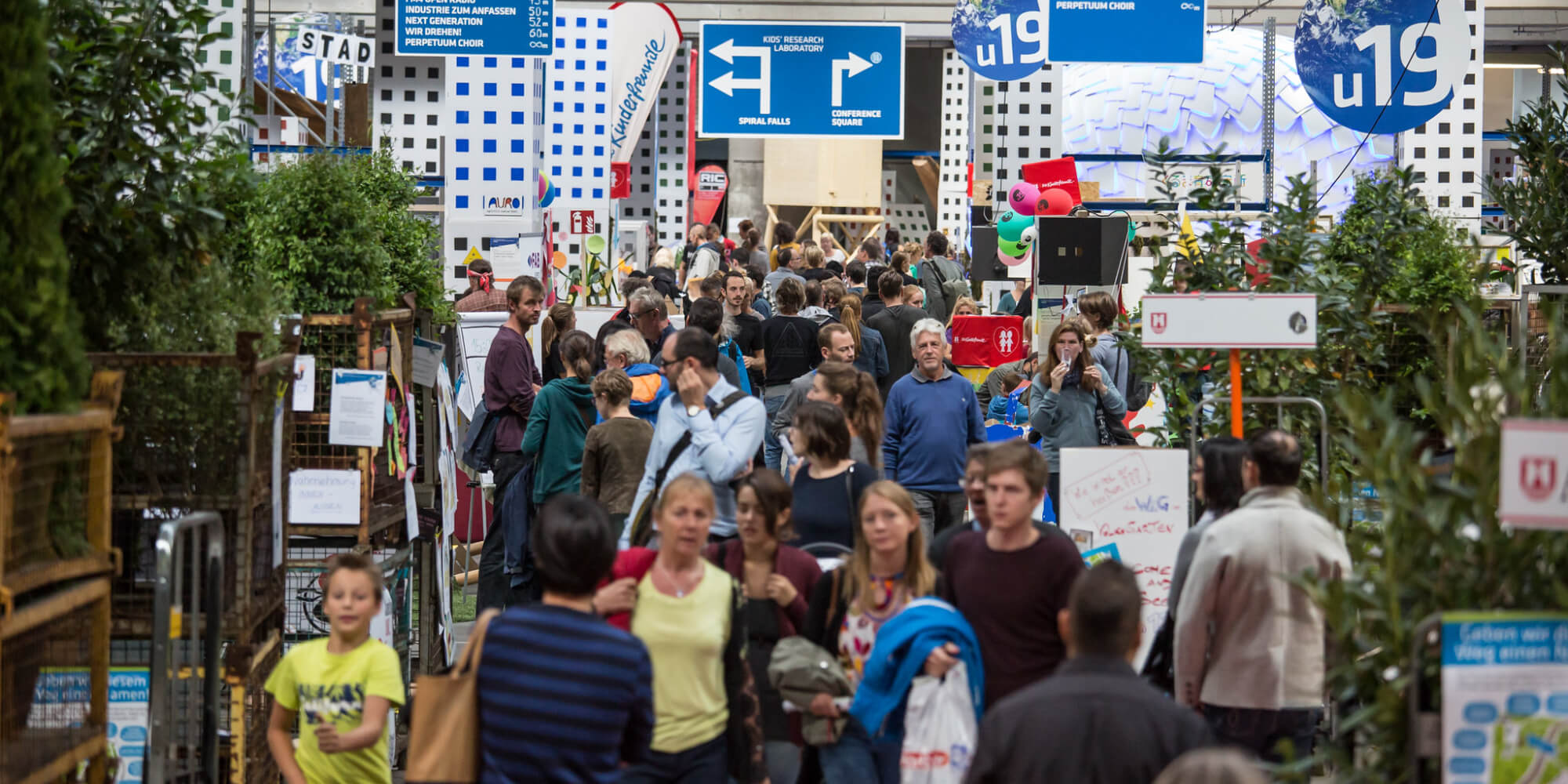



How does a motto like “truth or dare” come about, how does it reveal itself among the festival projects, and is the focus more on the truth or the dare?
Hans Christian Merten: I need to expand a bit to explain the origins of the topic: I proposed the title Klebstoff – Unlösbare Konflikte oder sozialer Zusammenhalt (Glue – Unsolvable Conflicts or Social Cohesion) for the Symposium Perspektiven Politische Bildung (Perspectives on Political Education), which we are organizing on Wednesday, the Education Day. Especially the topic of Klimakleber*innen (climate activists glueing themselves to the street) is polarizing right now and we are playing with the term glue – as something positive that holds things together, but also as something that needs a special solvent. I think this solvent for our society feels like a huge party game.
I have been accompanying create your world for a very long time and we have always wanted to encourage young people, motivate them and show them different possibilities. But in the midst of all the crises, especially exacerbated by the Corona Pandemic 2020, I myself had to rethink the wording create your world so that it doesn’t become a farce. We have worked intensively with young people and addressed their problems, and in addition psychological counseling was – and will continue to be – offered at the festival. We try to be a reception unit, but on the other hand to continue this life-affirming approach. The theme truth or dare – a party game – illustrates the despair of civil society, which stems from the fact that those in power often seem to decide arbitrarily: Today perhaps a reasonable measure, tomorrow instead a vacation on a luxury yacht. One does not have the feeling that the seriousness of the situation is recognized, that finally something is happening. Among other things, create your world takes a comprehensive look at the role of democratic processes. In the Symposium Perspektiven Politische Bildung, organized together with the Pädagogische Hochschule and the Arbeiterkammer Oberösterreich, for example, the digital education level is treated as a wide-ranging focus, because we finally need a functioning education system that communicates to young people: what is true/what is fake. This brings us back to the truth theme of the festival. At the moment one has the impression that before decision makers face the truth and become active, they rather choose duty and pay money as compensation. But money reduces CO2 emissions only to a very limited extent, even if it is used in the right way. That is exactly the problem that has led to this issue.

Among the presented projects, Otelo, for example, deals with the theme of activism. It’s about defining a space: What am I getting myself into? What are my limits? In contrast, the University of Arts’ Open Lab is an exciting project on the difference between perception and truth. Again, a special space is created – outside of that you can say how you perceive something and how you would design the space, then you go in and are confronted with the truth. The question is: How can you relate your perception to the truth?
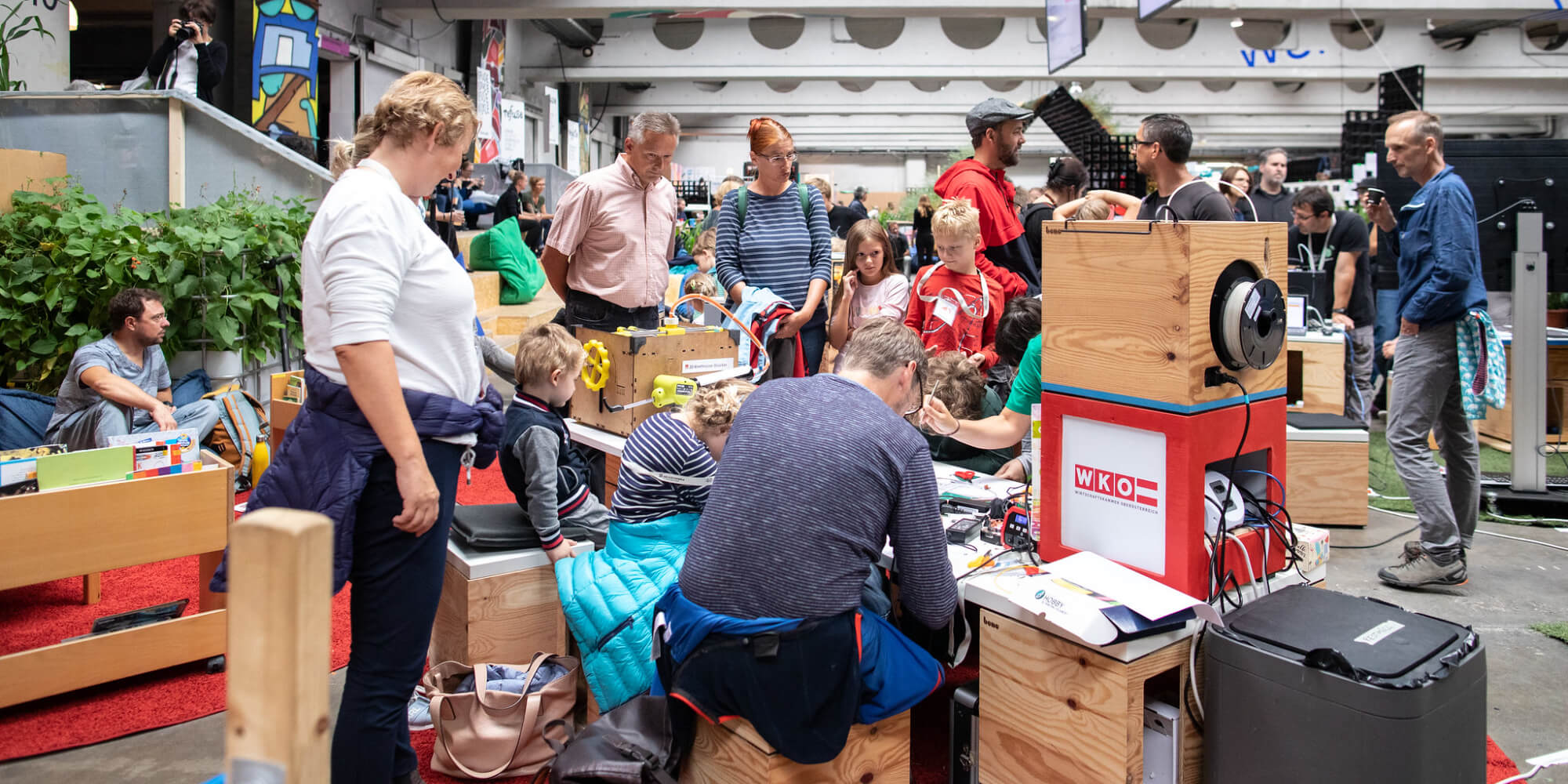
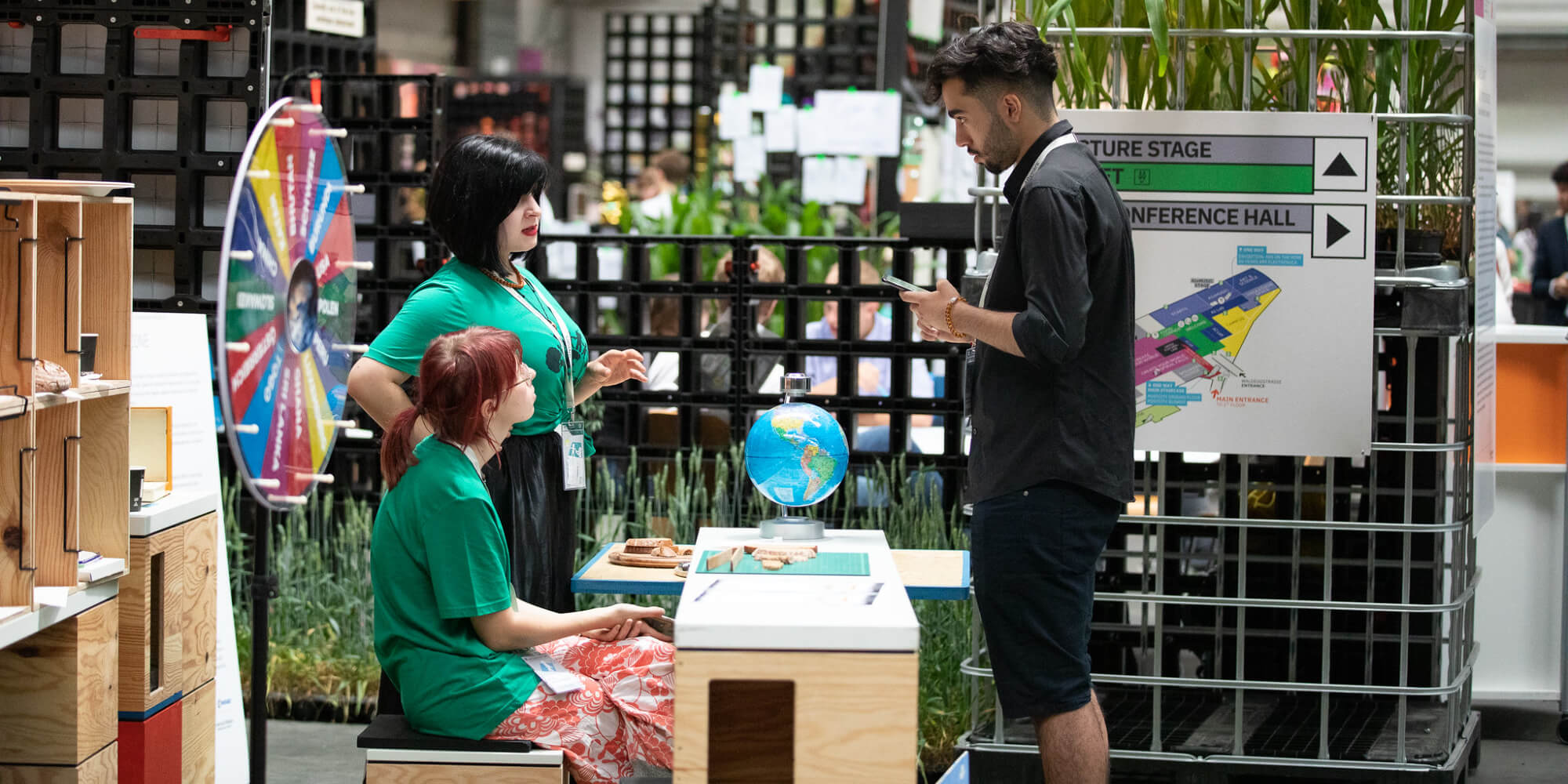
Which well-known contributions can visitors expect to see again at create your world this year?
Hans Christian Merten: A lot of long time players will be back, which makes me very happy. This way, a certain structure that you already know as a visitor is maintained and you notice the growth of create your world. A well-known example is the association FAB with all its motivated young people. This year they are doing a great AI Oracle, as always strongly focused on facilitating encounters with impaired people. In addition, there is once again a comprehensive elementary pedagogical area. Here the company Dynatrace supports us and we try to prepare content especially for children aged 5-10 years in an understandable way. This is generally an important ambition of create your world: to simplify the entire Ars Electronica oeuvre and put it into a simple language so that truly everyone can benefit from it. Once again, the Open Commons will be on site with Jugend hackt, which will show the beginnings of programming.



Also represented are radioFM4, which together with Paradice shows analog games in the popular Spielekammerl, and the roadLAB from the Technical Museum. I am also very proud of Open Kitchen, where visitors are offered regional products free of charge. The original idea is to enable families to visit the festival properly without having to spend a lot of extra money on food and drink. That makes for a good atmosphere and this year we once again have the association Is nu guat on site, which produces great food from products that would have been thrown away.
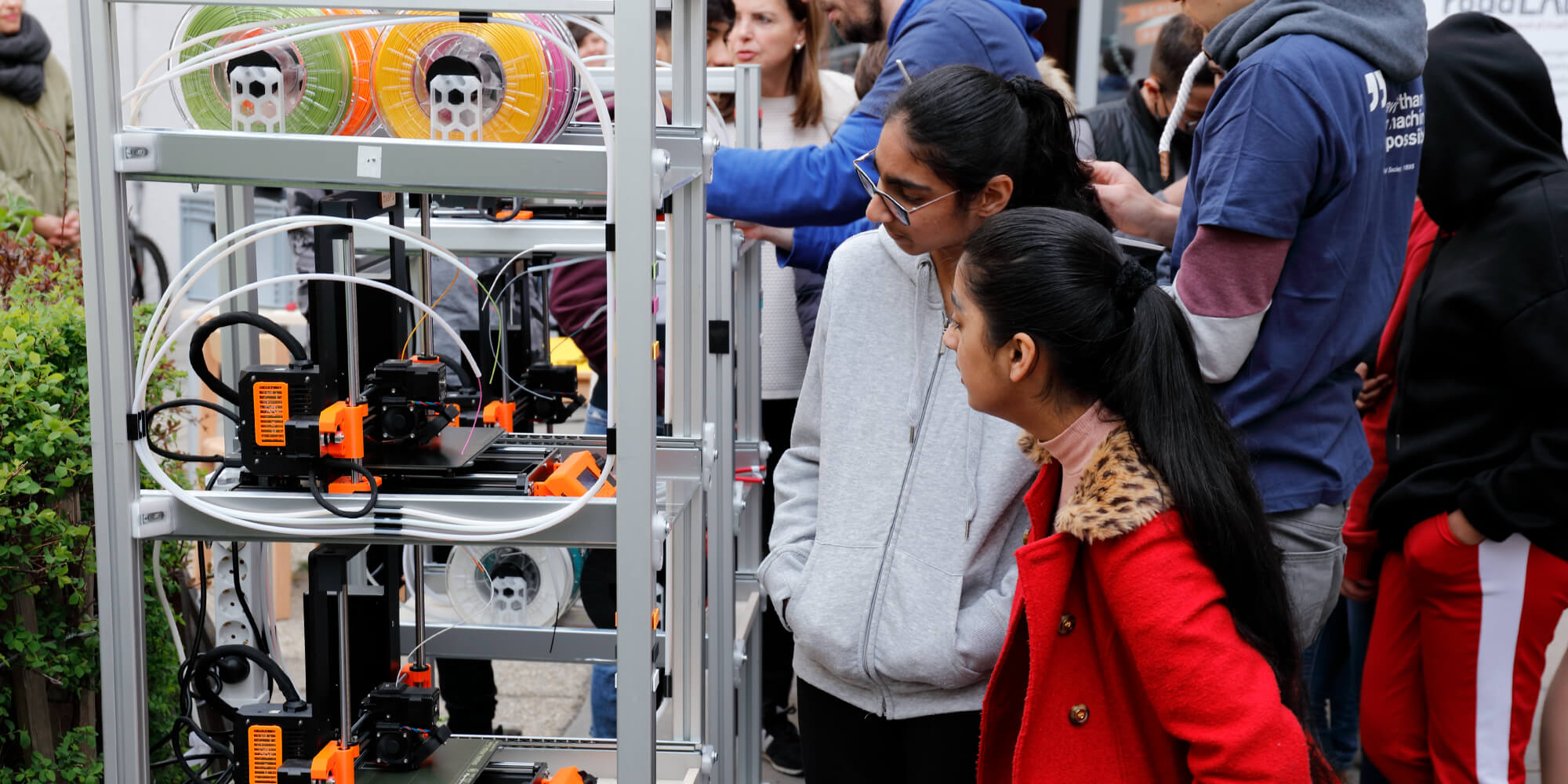


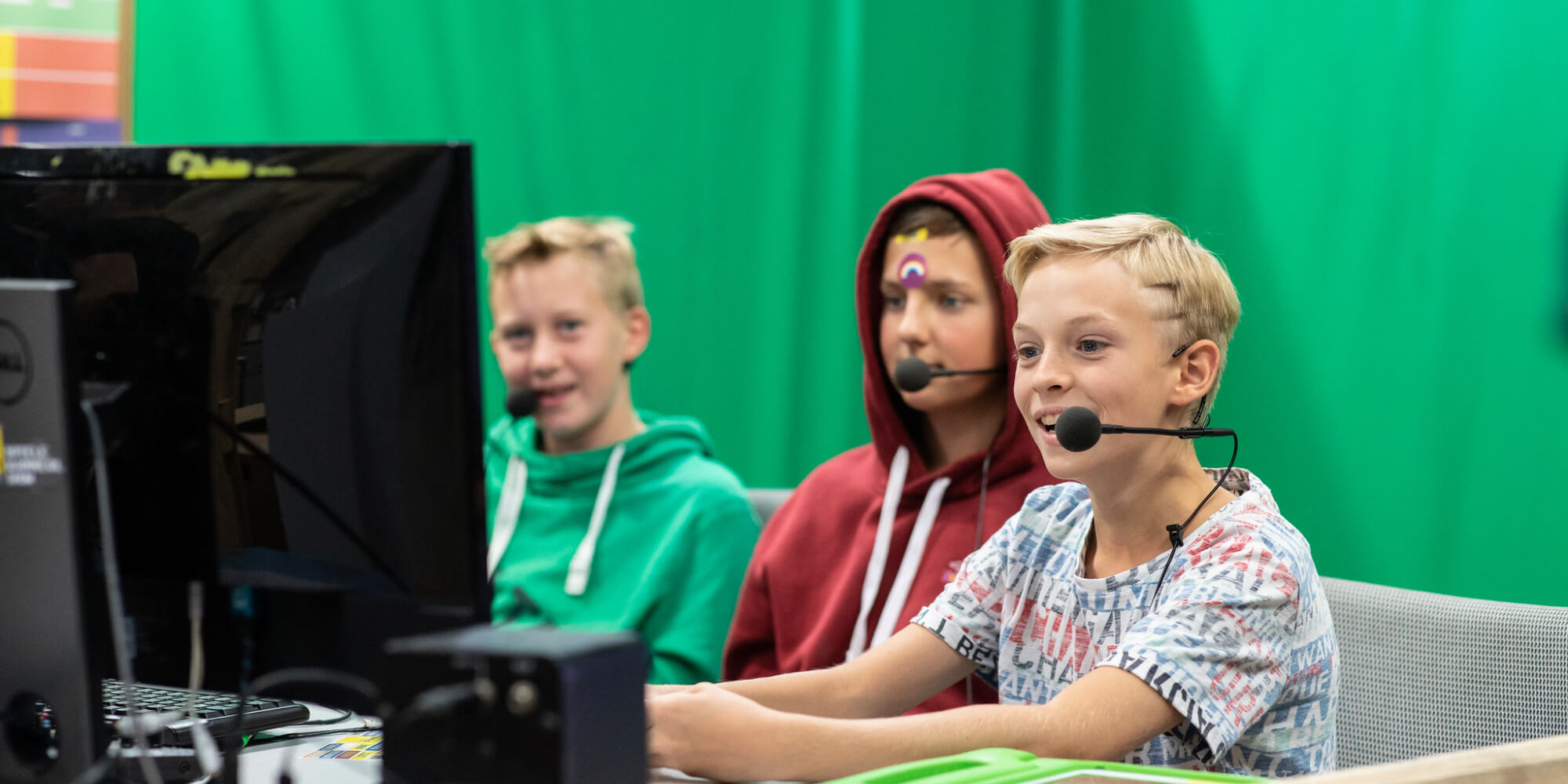
What new highlights can we look forward to?
Hans Christian Merten: Worth mentioning is certainly the huge cooperation project Space Messengers, for which we are working with an artist from New York, scientists from CERN and an artist collective from Vienna. What will be on display is a visualized, interactive project that allows visitors to engage with art and science in a variety of ways. Visitors will have the opportunity to interact with avatars behind which there is actually a live scientist. A special educational value comes from the fact that an Austrian school class and one from Portugal act as mediators to explain it to visitors. Sounds Queer, a great collective from Vienna – supported by our partner Abelton Live -, is on site to bring electronic music production closer to women in particular, or to all people with different orientations – a still very male-dominated level that we try to break open this way.


This year’s youth exchange project is also quite a highlight. It is titled What if … everything works out?. That is, what if everything goes well, if we reach all our goals? We have actually never elaborated on that in concrete terms. 15 young people from all over Europe think about it and create their own character over the course of the festival. It is about role play, in the context of which they also interact very strongly with the other create your world projects.
There is also the great u19 Prix Exhibition, where 23 high quality winning projects will be shown. Included are also works by young people that we have discovered ourselves: Three young female artists from Vienna are doing an insanely exciting project called Körper als Medium (Body as Medium) with labanotation. The result is something like a musical notation for movements, through which one can then actually perform movements oneself. Also worth mentioning: We took a work submitted for the Prix Ars Electronica as the basis for commissioning two young people to develop another new project for the Symposium Perspektiven Politische Bildung. They are making a great installation on the aforementioned glue theme in the form of different short films – very critical, civically insanely relevant and, above all, from the perspective of these young people.

In a way, the Prix u19 exhibition represents what moves the young generation – what works are on display this year and are there recognizable themes?
Hans Christian Merten: Very clearly visible are the powerlessness and anger that builds up in the young people, as well as the feelings of disbelief. A remarkable project is Meditações. The creators were on a class trip to Portugal and made a great film there, in which a teacher always repeats the same prayer: it’s about overcoming obstacles and never losing hope. Although everything constantly doesn’t work out and becomes worse and worse, more and more dreary, the teacher always keeps repeating the same thing – while watching, one almost falls into despair along them. The Golden Nica was awarded for the work Verblassende Stimmen (Fading Voices), which is insanely artistic, interesting and, on the other hand, tragic. The words of the artist’s own father, who died at an early age, were applied to a fabric as a waveform. That is – without knowing what he said – artistically very exciting, you can think about it for an long time and it brings you different truths for yourself. In this respect, there is also a reference to the festival theme, although it was not yet decided at the time. Many of the Young Creatives’ approaches also make me think a lot: the sense of responsibility, the critical view that things can’t go on like this, is sinking further and further down in age.
“For 9-year-olds to feel like they have to save the world – that doesn’t add up for me.”
Hans Christian Merten
The Prix Ars Electronica entries in the u19 – create your world category reflect, on the one hand, a sense of responsibility on the part of young people. On the other hand, older generations clearly address their demands, but are then insulted for doing so. The anger that builds up as a result can be something incalculable and dangerous, but also something positive, since grievances are highlighted. The important thing is how to deal with it, how to resolve conflicts in the beginning and how to find ways for oneself to shape one’s own life and not lose oneself in having to save the world every day. You can’t do everything right every day. The create your world festival shows that there are always different approaches and methods to deal with the problems, worries and fears of people.
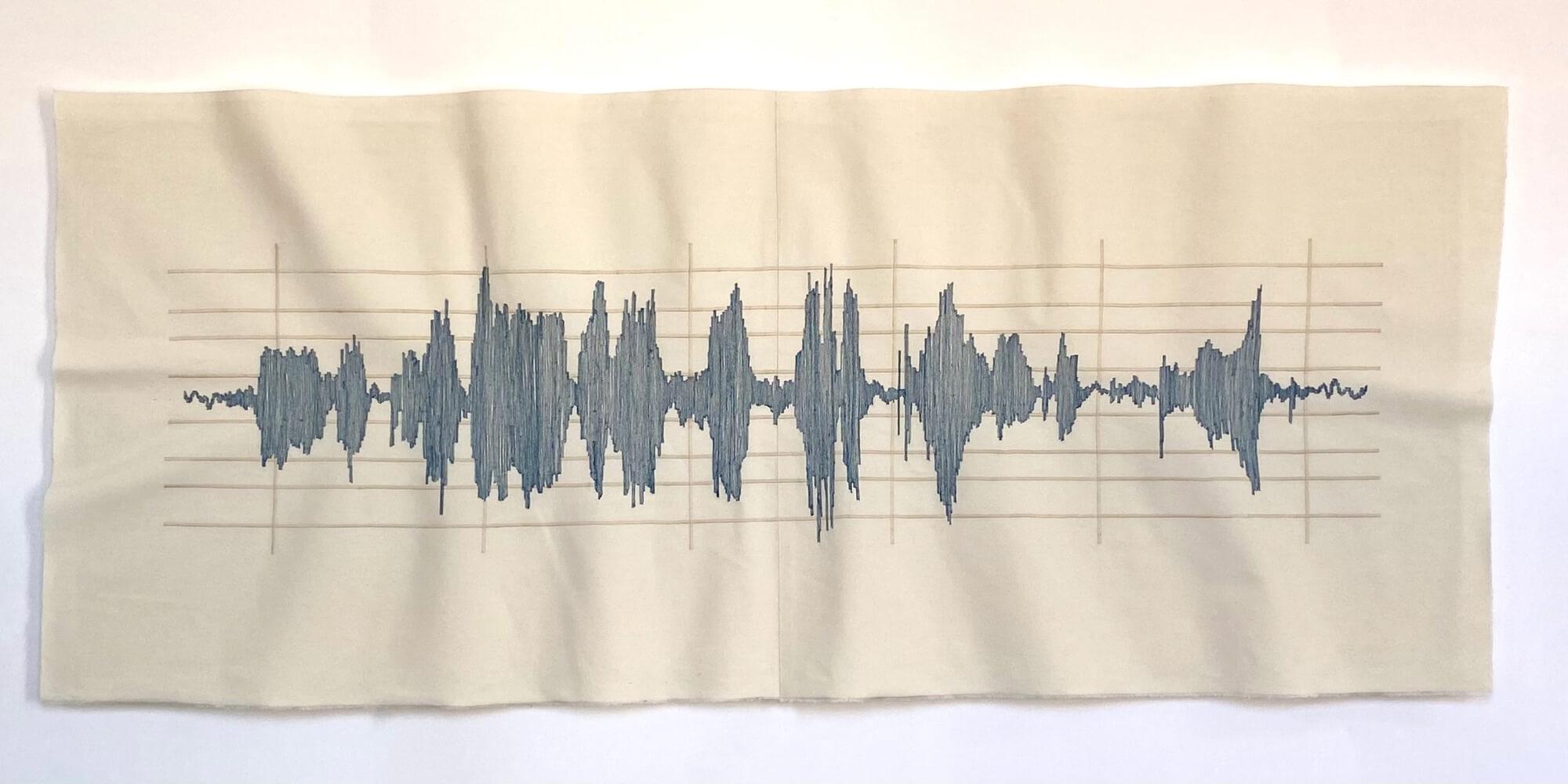
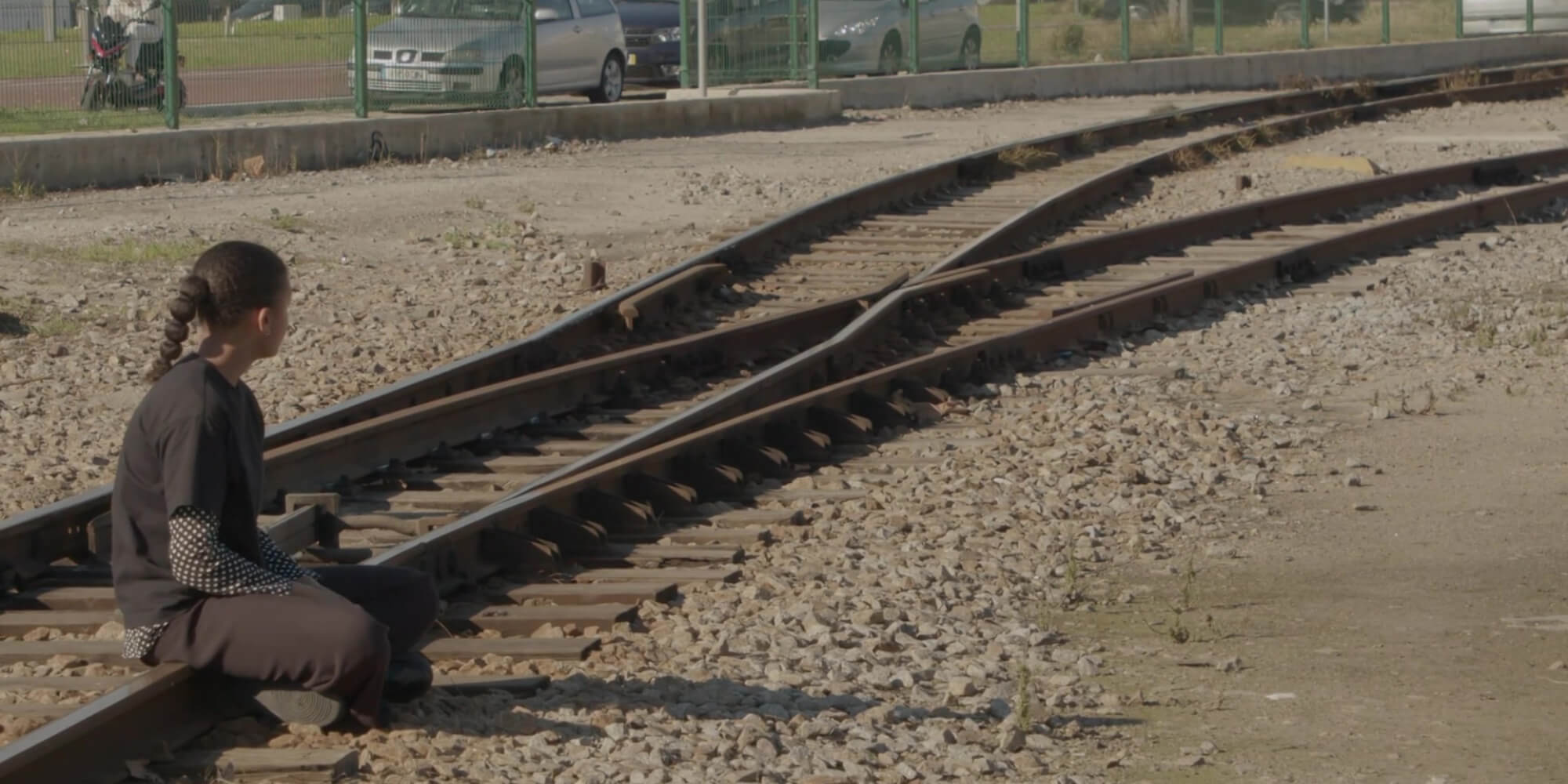

Find out more about the highlights of the 2023 Ars Electronica Festival here. Details will be continuously published online.
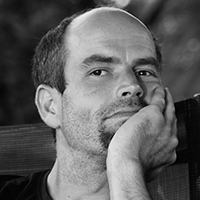
Hans Christian Merten has headed Ars Electronica’s u19 – CREATE YOUR WORLD division since 2013. He studied audio technology & design in Vienna and completed various programs at Bruckner University in Linz. From 2002 to 2010, he taught at the Upper Austria University of Applied Sciences’ Hagenberg Campus (media technology & design) and at the High School for Communication and Media in Freistadt. 2010-13, he served as artistic director of the multiple-prizewinning festival “kult – das neue Mühlfestival” in Freistadt. Since 2005, he’s been a freelance artist and director of the Music for Film & Media project studio in Gutau, Upper Austria.
